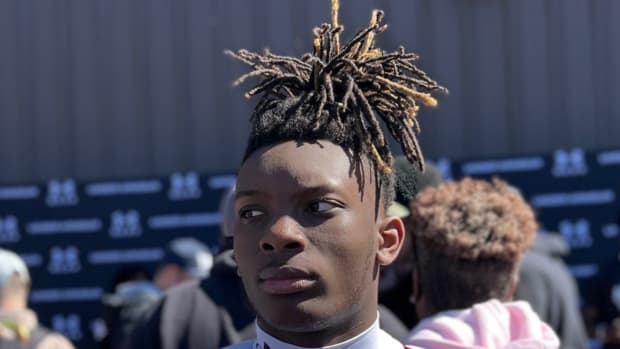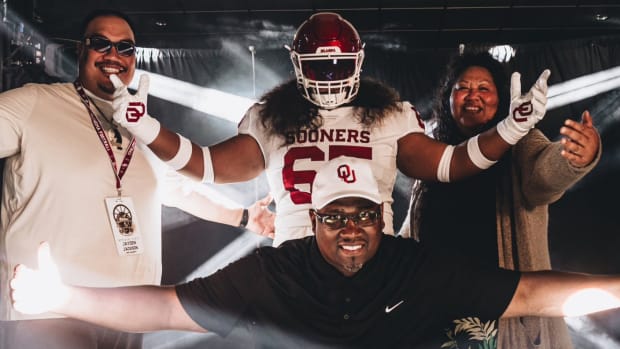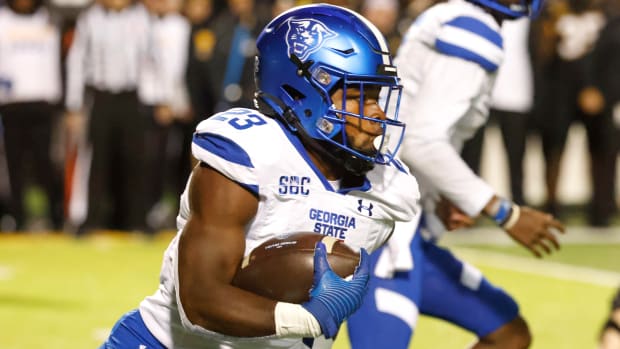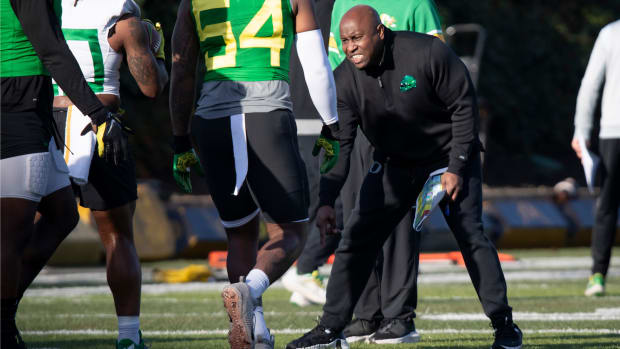Does the NCAA's Threat to California Schools' Championship Access Hold Up?
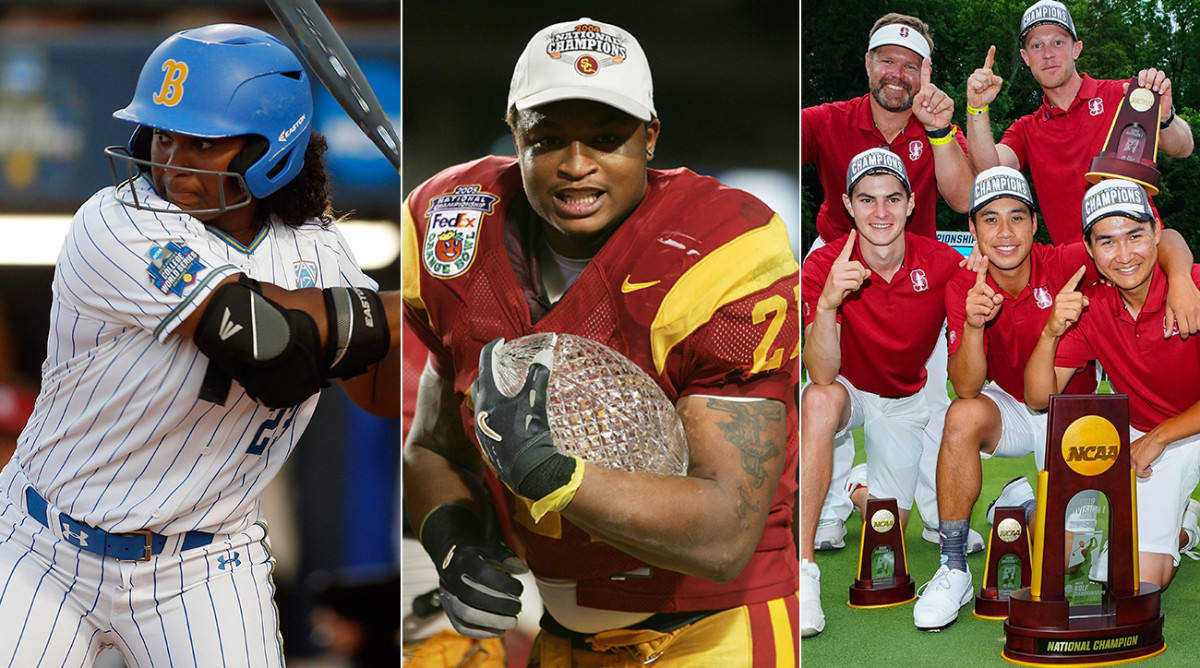
Is the NCAA playing a game of championship-extortion with California lawmakers? And is it a game that will ultimately backfire?
In a new letter to the California Senate, NCAA president Mark Emmert warns that if the Fair Pay to Play Act becomes law, it would become “impossible” for the NCAA to deem California colleges eligible to participate in national championships.
A brief primer on the Fair Pay to Play Act
As explained in a Sports Illustrated story published last month, the Fair Pay to Play Act would require that California colleges treat its student-athletes along the lines envisioned by former UCLA basketball star Ed O’Bannon in his historic case against the NCAA.
Specifically, California colleges that receive an average of $10 million a year in media rights revenue would be statutorily prohibited from denying their student-athletes the chance to earn compensation derived from the use of their names, images and likenesses. Consequently, UCLA men’s basketball players, Stanford women’s volleyball players, USC football players, Cal women’s swimmers and other athletes at California schools would be authorized by law to join advertising campaigns, sign endorsement deals, negotiate for inclusion in video games and sign countless other types of licensing contracts. They would also be able to hire agents to represent them in these dealings.
Under the act, university administrators and athletic department compliance officers would be denied the chance to meaningfully argue that NCAA rules tie their hands. The act tells colleges, in so many words, their hands must be untied. In fact, the act contemplates that a school would be held liable under the law if it pulled or reduced an athlete’s scholarship on account of the athlete profiting from his or her identity.
Understanding what the act is—and isn’t
To be clear, the act would not convert college athletes into full-time employees, part-time employees, independent contractors, vendors or any other conceivable classification of university “worker.” They would continue to be students.
Nor would the act require that colleges pay their athletes a salary, stipend or other dollar figure. The act is not about the student-athlete’s relationship with his or her school, conference or the NCAA. It’s about the athlete’s relationship with the myriad businesses that profit from college sports and, in turn, the athlete’s identity.
To that end, the act would empower college athletes to individually, or collectively, profit from the use of their name, image and likeness in commercial products. These athletes would be able to sign contracts with any number of third parties—including video game publishers, clothing stores, apparel manufacturers, retailers of memorabilia and collectibles, equipment and sporting good companies and car dealerships. For elite college athletes whose marketability is maximized while in school and who play sports that lack lucrative professional leagues—such as swimmers and track athletes—the opportunity to monetize their identities while in school is particularly valuable.
Colleges in California might regard the prospect of the act becoming law as potentially damaging to their finances. This would be particularly true if those schools worry that their business partners would shift some of the compensation currently directed to schools towards the athletes.
For instance, if a university sponsor must pay the university’s athletes for use of their names or likenesses, the sponsor might demand that it pay the university less. After-all, the athletes’ value would be recognized as apart from that of the university, meaning the university’s collection of intellectual property assets would be diminished.
Of course, universities worrying about sharing money with the athletes who play the games and whose intellectual property is used in marketing isn’t a particularly compelling justification to deny those athletes the opportunity to be paid.
The act’s legislative process
The Act has steadily advanced through the California legislature and appears poised for eventual passage.
Senators Nancy Skinner and Steven Bradford introduced the act as Senate Bill 206 on Feb. 4. Three months later, the act easily passed the California Senate by a vote of 31–5, with all 28 Democratic senators voting in favor. The act then moved to the California Assembly, where it was initially reviewed by two committees: the Committee on Arts, Entertainment, Sports, Tourism, and Internet Media (Arts) and the Committee on Higher Ed.
The act is now before the Committee on Arts, with a committee vote scheduled for Tuesday. Five of the seven members of the Committee on Arts are Democrats, which suggests it will probably pass the committee. It would then be reviewed by the Committee on Higher Ed, whose members include nine Democrats and three Republicans. Further, the California Assembly features a super-majority of 61 Democrats and 19 Republicans, another factor suggesting the act will advance in the legislative process. The California legislature, however, adjourns for a one-month summer recess on July 12, and it’s unclear if a vote on the act would occur before that date. If the act is passed, it is likely that California Governor Gavin Newsom, a Democrat, would sign it into law.
The significance of a multi-year delay in implementing the act
Assuming the act is eventually passed and signed into law, it would not take effect until Jan. 1, 2023. A multi-year delay between signing and implementation would leave the NCAA with plenty of time to undertake reforms that render the act obsolete or unnecessary. As explained below, the delay would also furnish the NCAA with ample opportunity to challenge the act in court.
The NCAA recently formed a working group to contemplate changes to NCAA rules that prohibit college athletes from profiting off of their names, images and likenesses. Many commentators are skeptical that the working group, which is led by Big East commissioner Val Ackerman and Ohio State athletic director Gene Smith, will propose recommendations that, if adopted, would meaningfully alter NCAA rules. The NCAA is not known as an engine for reform, and the working group consists of institutional stakeholders.
Still, the group could recommend that college athletes be able to profit from their names, images and likenesses in ways that do not betray core NCAA ideals. For instance, college athletes might be able to deposit licensing monies into trust accounts that are only accessible after college ends. Or college athletes could reap profits through carefully defined methods and in narrowly-construed circumstances (similar to rules for college athletes who are also Olympic athletes and who, within certain parameters, can keep stipends and prize money). Legislative proposals in Congress, such as Congressmen Mark Walker and Cedric Richmond’s Student-Athlete Equity Act, which would condition the NCAA’s eligibility as a non-profit on the NCAA permitting student-athletes to monetize their identities, could also alter the legal landscape long before 2023 comes to pass.
Why the NCAA has leverage over California
Emmert’s letter contemplates a scenario where California passes the Fair Pay to Play Act and, for an undefined period of time, college athletes in California receive superior rights to those in other states. The act, as explained above, would compel California colleges to allow their athletes to profit from the commercial use of their names, images and likenesses. This means those colleges couldn’t forbid their athletes from signing endorsement deals or licensing contracts on account of NCAA rules. California law would explicitly permit such signings, and law trumps the internal rules of a private entity such as the NCAA.
California colleges would thus gain a comparative recruiting advantage over colleges in other states. All things being equal, a high school athlete who could earn thousands of dollars in endorsement opportunities that would be unavailable to him or her if they instead went to college in Oregon, Texas, Alabama or Florida would presumably be more inclined to go to college in California. This is why Emmert’s letter expresses concern about the creation of “local differences that would make it impossible to host fair national championships.” Emmert is correct on that point: California schools would play by a different and more favorable set of rules.
NCAA amateurism—which, as an overarching concept, refers to NCAA rules and policies that purport to distinguish college athletes from professional athletes—could not credibly function if some of the NCAA’s 1,200-plus member institutions play by one set of rules and other members play by another. Therefore, if the act becomes law, the NCAA would face a stark choice: change its rules so that all member institutions across the country adhere to the act’s requirements, or contemplate other measures that segregate or even expel California schools from other NCAA members.
For now, it appears the NCAA is focused on the latter.
If the NCAA carried through on Emmert’s threat to revoke the eligibility of California schools to participate in championships, the NCAA would essentially punish California schools and their students for the act becoming law. The NCAA also wants California lawmakers to consider that hotels, restaurants and similar businesses that profit from the state hosting NCAA tournament games would suffer. Essentially, Emmert is warning state lawmakers that the NCAA will take its business elsewhere. State lawmakers, then, would be to blame for student-athletes at California colleges losing the chance to compete in major collegiate tournaments. This dynamic might give some California lawmakers cold feet before voting “aye.”
Why California has leverage over the NCAA
The problem for the NCAA would be the risk of adverse fallout and unintended consequences from carrying out this plan. Of all states to punish, California is probably the best positioned to strike back. California has, by far, the largest economy of the 50 states. In fact, according to the American Enterprise Institute, California would have the fifth-largest economy in the world if it were a separate country.
California and its colleges would not surrender the opportunity to profit from the enormously lucrative world of college sports merely because the NCAA excludes them from championship activities or even strips them of their NCAA memberships. Likewise, if the Pac-12 conference banishes UCLA, USC, Stanford and Cal on account of those schools playing by a different set of rules, those schools wouldn’t suddenly drop big-time athletics and wave the white flag. Most likely, California colleges with large athletic programs would launch their own collegiate league, with its own set of rules and its own TV and merchandise contracts. Perhaps other states would join, too.
Therein lies an existential threat for the NCAA: If it takes steps to unwittingly encourage one segment of its membership to break off, the separation could actually happen and prove successful. Meanwhile, schools and conferences in other states and regions would notice, learn and potentially pursue similar initiatives.
The NCAA’s main purpose for existing is to organize athletic contests across the country and in ways that ostensibly maintain a balance between academics and athletics. If those same functions could be provided just as effectively by state or regional entities, and in ways that offer athletes greater opportunity to take advantage of their names, images and likenesses, the NCAA would have a more difficult time articulating its purpose.
How the Fair Pay to Play Act could be challenged in court
Before we get too far ahead of ourselves, it’s worth stressing that the Fair Pay to Play Act is not yet law. Further, even if the act becomes law, a lot can happen before 2023.
To that end, the NCAA and member schools would be poised to challenge the legality of the act before it goes into effect. As detailed in another Sports Illustrated story, the act could be challenged under the Commerce Clause as contained in Article I, Section 8 of the U.S. Constitution. This clause makes it illegal for states to unduly interfere with interstate commerce.
Given that NCAA games are played in different states, given that athletes, coaches and fans travel to different states to play games and given that games are broadcast and marketed across state lines, the NCAA would have a credible argument that California adopting the act would pose substantial economic consequences for other states. Likewise, the NCAA might assert that the act would essentially force it—an entity that does business across state lines—into a choice between two unwanted options: change its rules to follow those required by California law or possibly lose California schools as members.
Michael McCann is SI’s Legal Analyst. He is also an attorney and Director of the Sports and Entertainment Law Institute at the University of New Hampshire Franklin Pierce School of Law.

